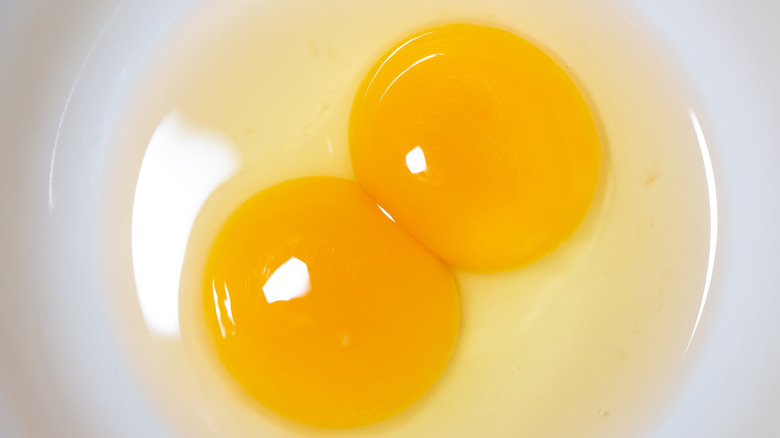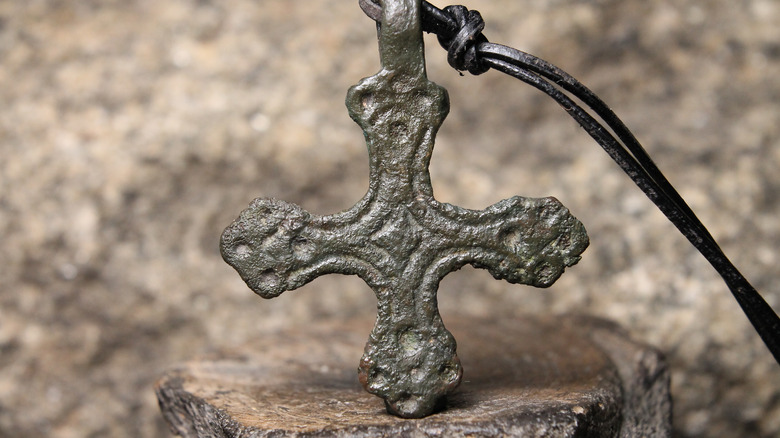The Morbid Meaning Of Double-Yolked Eggs In Norse Mythology
What came first, the chicken or the egg? It's one of life's most perennial questions that still hasn't been fully answered. Some scientists argue that the egg has to predate the chicken while others say that the chicken likely predates the chicken's egg, as reported by New Scientist.
Either way, it's undeniable that humans are fans of eating eggs. In fact, the first humans started swiping eggs from nests to eat raw about six million years ago, and denizens of Egypt and China kept hens, presumably to eat their eggs (via Incredible Egg). They are a staple of many cuisines since they make a great standalone snack, a popular breakfast food, a binding agent in cooking, and an easy protein add-on to many dishes.
Despite the variety of eggs out there, the insides are pretty standard and composed of only two parts: an egg yolk and the surrounding egg white. However, sometimes eggs are yolkless or contain more than one yolk, but — even with the Guinness World Record being nine yolks in one egg — the chance of stumbling upon an egg with two yolks is only 1 in 1000 (per Egg Safety). With those odds, some may view a double-yolked egg as lucky, but in Norse mythology, a double-yolked egg is anything but a good sign.
Double-yolked eggs: a deathly omen
According to Chickens and More, double-yolked eggs are more commonly made by young hens whose reproductive systems are still developing or older hens whose reproductive systems are slowing down. It's a result of a hen's body trying to release two eggs at once. Some breeds like the Rhode Island Reds and Orpingtons are even more prone to producing double-yolked eggs, which are safe to eat and contain double the protein. Wiccans believe the double yolk to be good luck, but Norsemen take it as a sign of a coming death.
Norse mythology is famous for being the origin of popular cultural icons like Thor, Loki, and the Vikings — who were known mostly for their diet of mead, beer, fruit wine, meat, and fish (via Norse Mythology). But the Vikings also held an egg-centered superstition, per Sauder's Eggs. Norse mythology held the belief that discovering a double-yolked egg meant someone close to you would perish.
The reason why they thought this is largely unknown, but it may have something to do with a hen's higher likelihood to produce a double-yolked egg after menopause, thus being closer to death. Luckily, more cultures believe a double-yolked egg to be a sign of good fortune and fertility.

